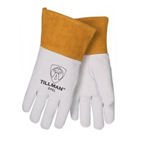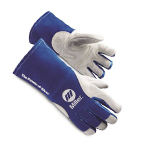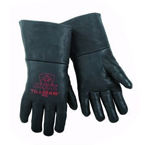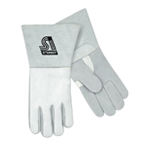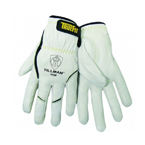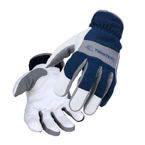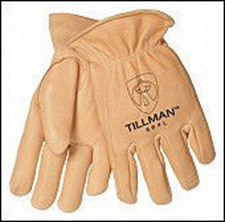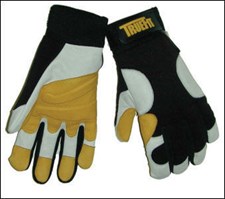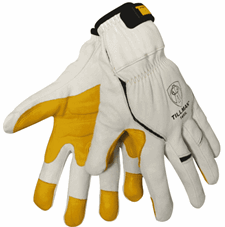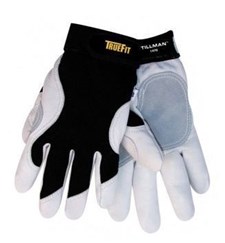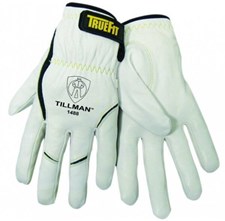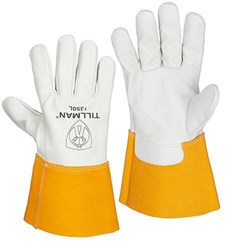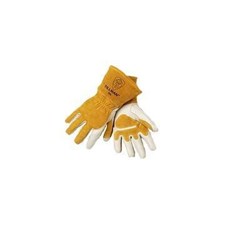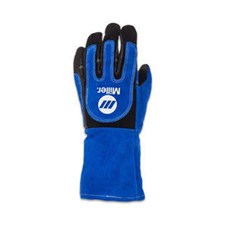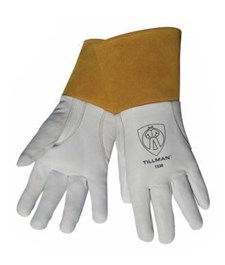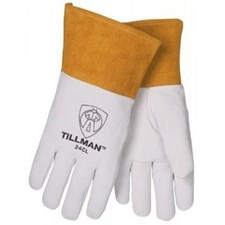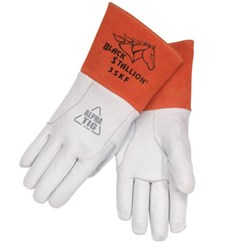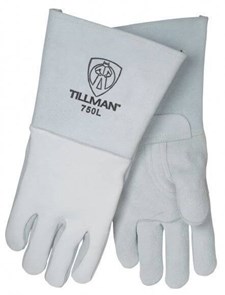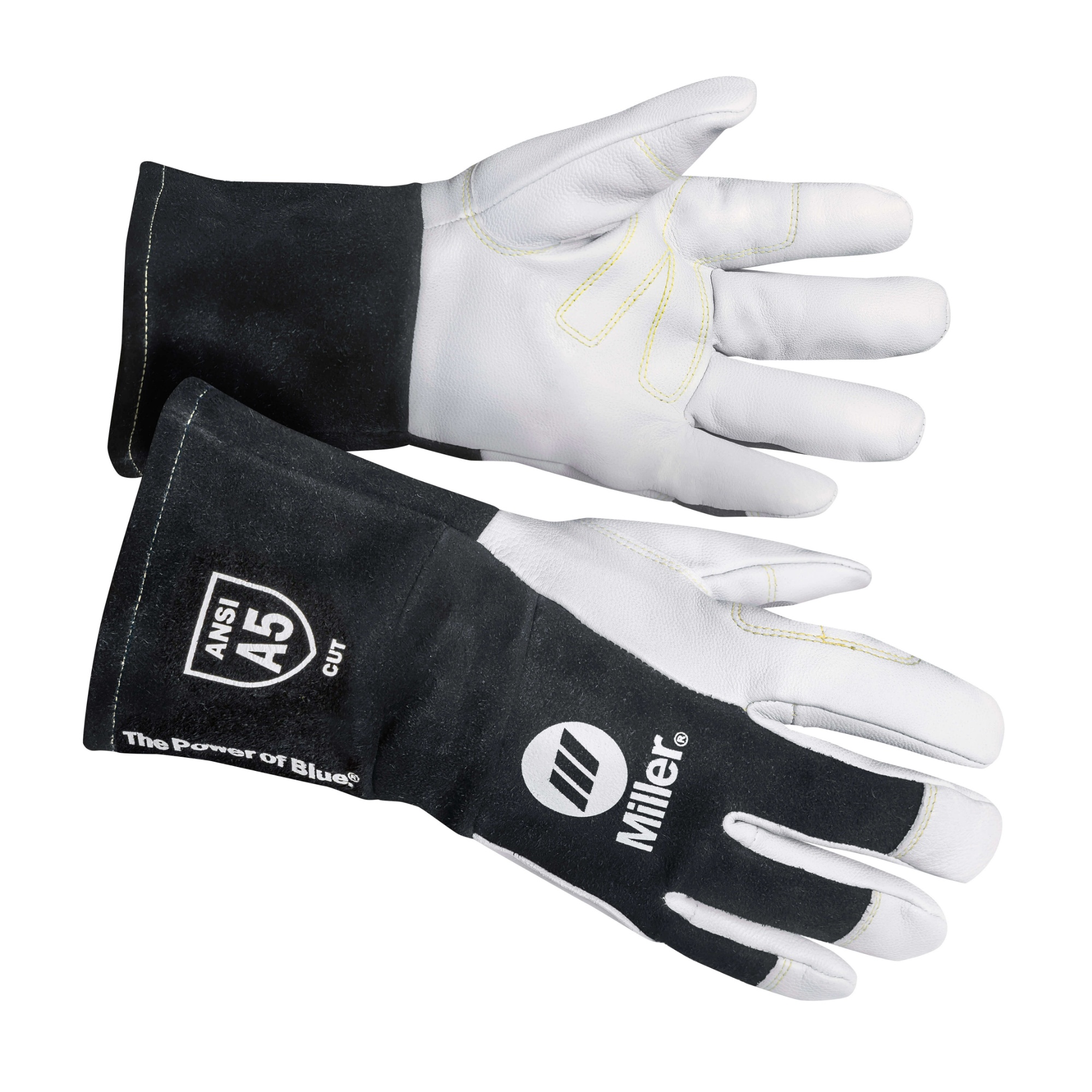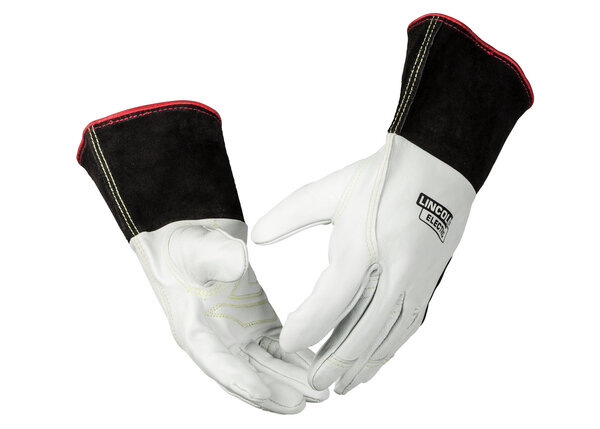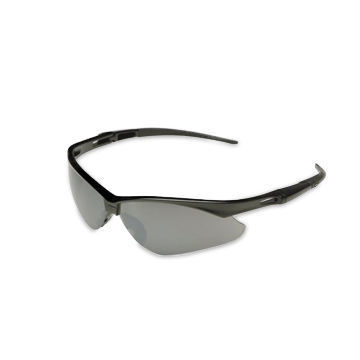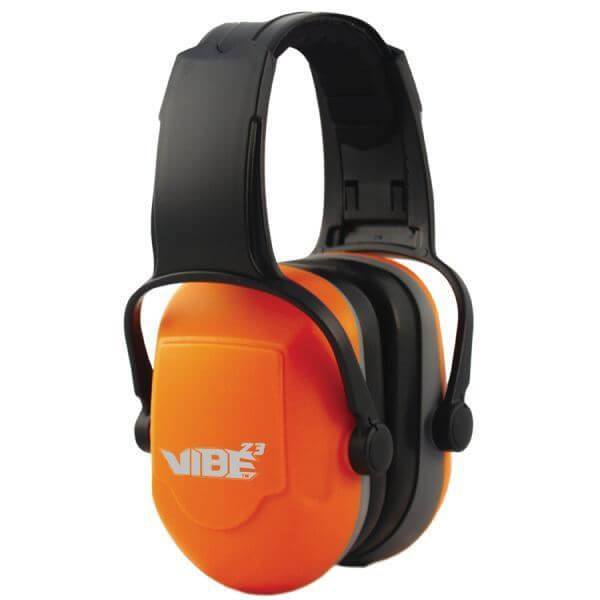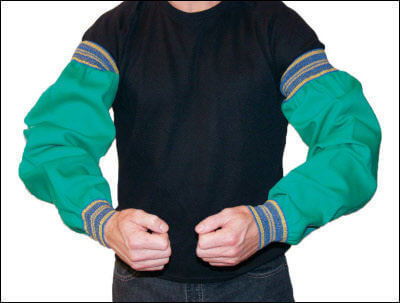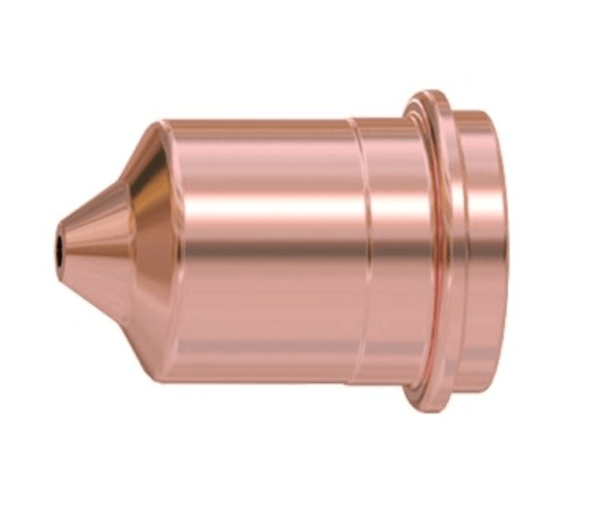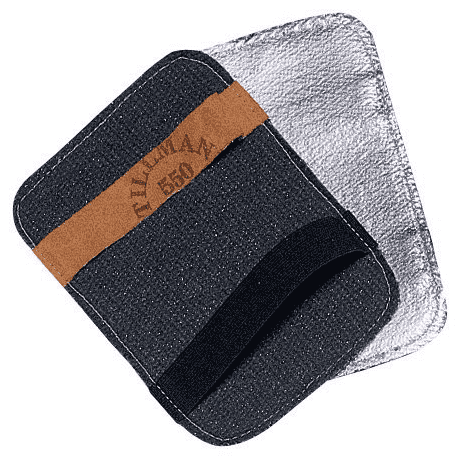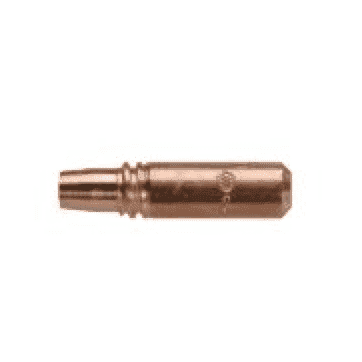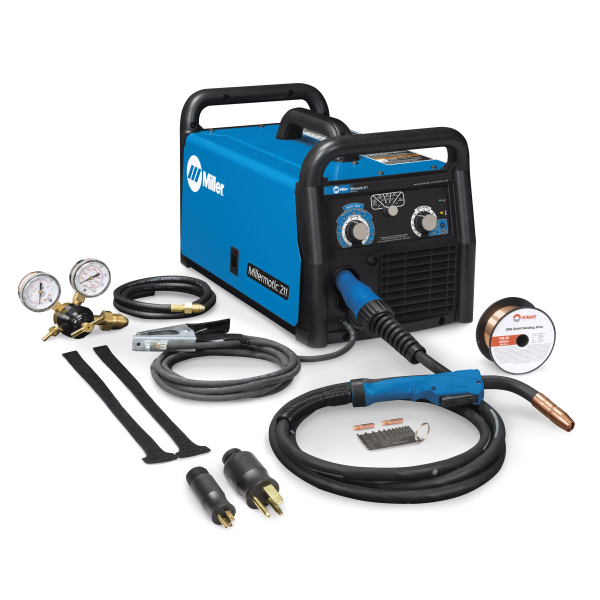268 Welding Gloves Starting at $1.05
Shop our inventory of 283 welding gloves for sale from $0.55 to $188.85 from top-rated welding glove manufacturers like Revco Black Stallion, Tillman, & Steiner. Choose from various MIG and TIG leather, elkskin, and goatskin welding gloves. Shop with Welders Supply to get the lowest online prices with free shipping on orders over $300.
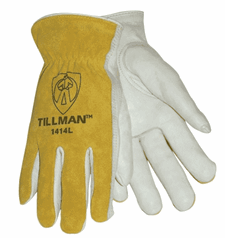 Tillman Gloves
Tillman Cowhide Leather Drivers Glove - 1414
17457 purchased
Tillman Gloves
Tillman Cowhide Leather Drivers Glove - 1414
17457 purchased
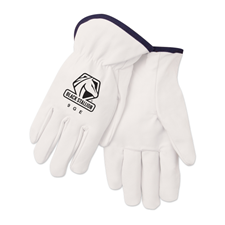 Revco Black Stallion
Premium Grain Goatskin Drivers Glove #9GE
1676 purchased
Revco Black Stallion
Premium Grain Goatskin Drivers Glove #9GE
1676 purchased
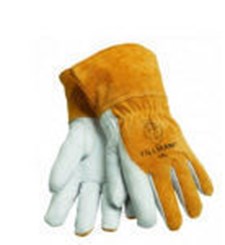 Tillman Gloves
MIG Welding Gloves (Top Grain Goatskin/Split Cowhide) #48
2070 purchased
Tillman Gloves
MIG Welding Gloves (Top Grain Goatskin/Split Cowhide) #48
2070 purchased
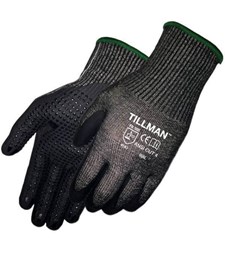 Tillman Gloves
Cut Resistant Gloves (Dotted Micro Foam Nitrile) #956S
Tillman Gloves
Cut Resistant Gloves (Dotted Micro Foam Nitrile) #956S
 Revco Black Stallion Gloves
22oz Kevlar, Wool Insulated, Thermal Protective Gloves #DK114
96 purchased
Revco Black Stallion Gloves
22oz Kevlar, Wool Insulated, Thermal Protective Gloves #DK114
96 purchased
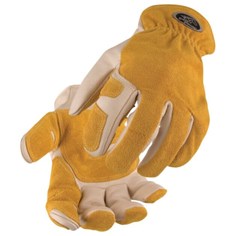 Revco Black Stallion
Versatile Grain Cowhide Palm Drivers Glove with Reinforced Palm #97SW
2599 purchased
Revco Black Stallion
Versatile Grain Cowhide Palm Drivers Glove with Reinforced Palm #97SW
2599 purchased
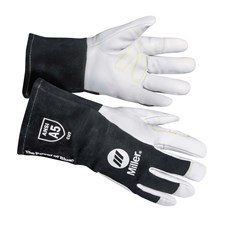 Miller Safety Equipment
Cut-Resistant MIG Welding Gloves #290412
74 purchased
Miller Safety Equipment
Cut-Resistant MIG Welding Gloves #290412
74 purchased
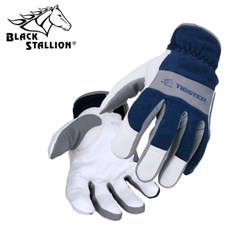 Revco Black Stallion
Tigster® FR Cotton/Grain Kidskin Premium TIG Welding Gloves #T50
1416 purchased
Revco Black Stallion
Tigster® FR Cotton/Grain Kidskin Premium TIG Welding Gloves #T50
1416 purchased
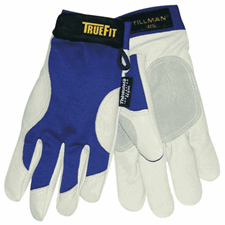 Tillman Gloves
TrueFit Insulated Pigskin Winter Work Gloves #1485M
1560 purchased
Tillman Gloves
TrueFit Insulated Pigskin Winter Work Gloves #1485M
1560 purchased
 Revco Black Stallion Gloves
22oz Kevlar, Wool Insulated, 23" Thermal Protective Gloves #DK123
48 purchased
Revco Black Stallion Gloves
22oz Kevlar, Wool Insulated, 23" Thermal Protective Gloves #DK123
48 purchased
What are Welding Gloves?
Welding gloves are specialized protective gloves designed to shield hands from heat, sparks, and molten metal during welding. Made from durable, heat-resistant materials like leather and Kevlar, these gloves provide insulation and dexterity for various welding applications. The right pair ensures safety, comfort, and precision while working with high temperatures and electrical hazards.
How Much Do Welding Gloves Cost?
Welding gloves range in price from $0.55 to $188.85, depending on the material, brand, and level of protection offered. Entry-level gloves for light-duty welding are budget-friendly, while high-end models with advanced heat resistance, Kevlar stitching, and reinforced palms cater to professional welders handling extreme conditions.
What Are the Best Welding Gloves?
The best welding gloves depend on the type of welding, material durability, and comfort. Top-rated brands include:
- Revco Black Stallion: Known for innovative designs, superior heat resistance, and ergonomic fit
- Tillman: Offers high-quality leather welding gloves for MIG, TIG, and stick welding
- Miller: Durable, flexible gloves with reinforced protection for various welding tasks
- Steiner Industries: Specializes in heat-resistant, heavy-duty gloves for industrial welding applications
Welding Gloves Uses
Welding gloves are essential for protecting hands during various welding processes. Common uses include:
- MIG Welding: Shields against sparks and high temperatures, ensuring a secure grip on the welding torch.
- TIG Welding: Provides dexterity for precise, controlled movements when working with thinner materials.
- Stick Welding: Offers maximum heat protection for heavy-duty welding projects.
- Metal Fabrication: Protects hands from abrasions, cuts, and high heat in metalworking applications.
- Industrial & Construction Work: Ensures safety when handling hot materials, machinery, and welding equipment.
Types of Welding Gloves
Different types of welding gloves cater to specific welding processes and materials:
- TIG Welding Gloves: Thin and flexible gloves that offer excellent dexterity for detailed work.
- MIG Welding Gloves: Heavier gloves designed to withstand sparks and moderate heat levels.
- Leather Welding Gloves: Made from various types of leather, providing durability and heat resistance.
- Elkskin Welding Gloves: Soft, durable, and resistant to cracking, even under extreme heat.
- Kidskin Welding Gloves: Lightweight gloves offering superior finger control, ideal for TIG welding.
- Deerskin Welding Gloves: Flexible and comfortable, with good heat resistance for extended wear.
- Cowhide Welding Gloves: Durable and abrasion-resistant, suitable for MIG and stick welding.
- Pigskin Welding Gloves: Water-resistant and durable, offering flexibility in damp conditions.
- Kevlar Lined Welding Gloves: Reinforced with Kevlar for enhanced heat and cut resistance, ideal for high-temperature welding






